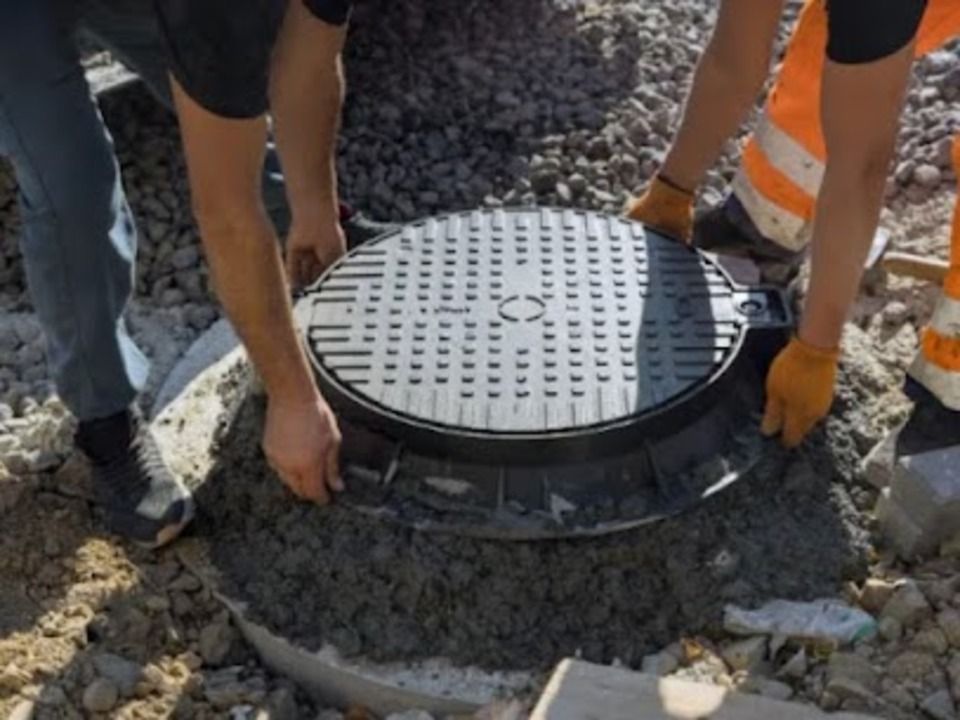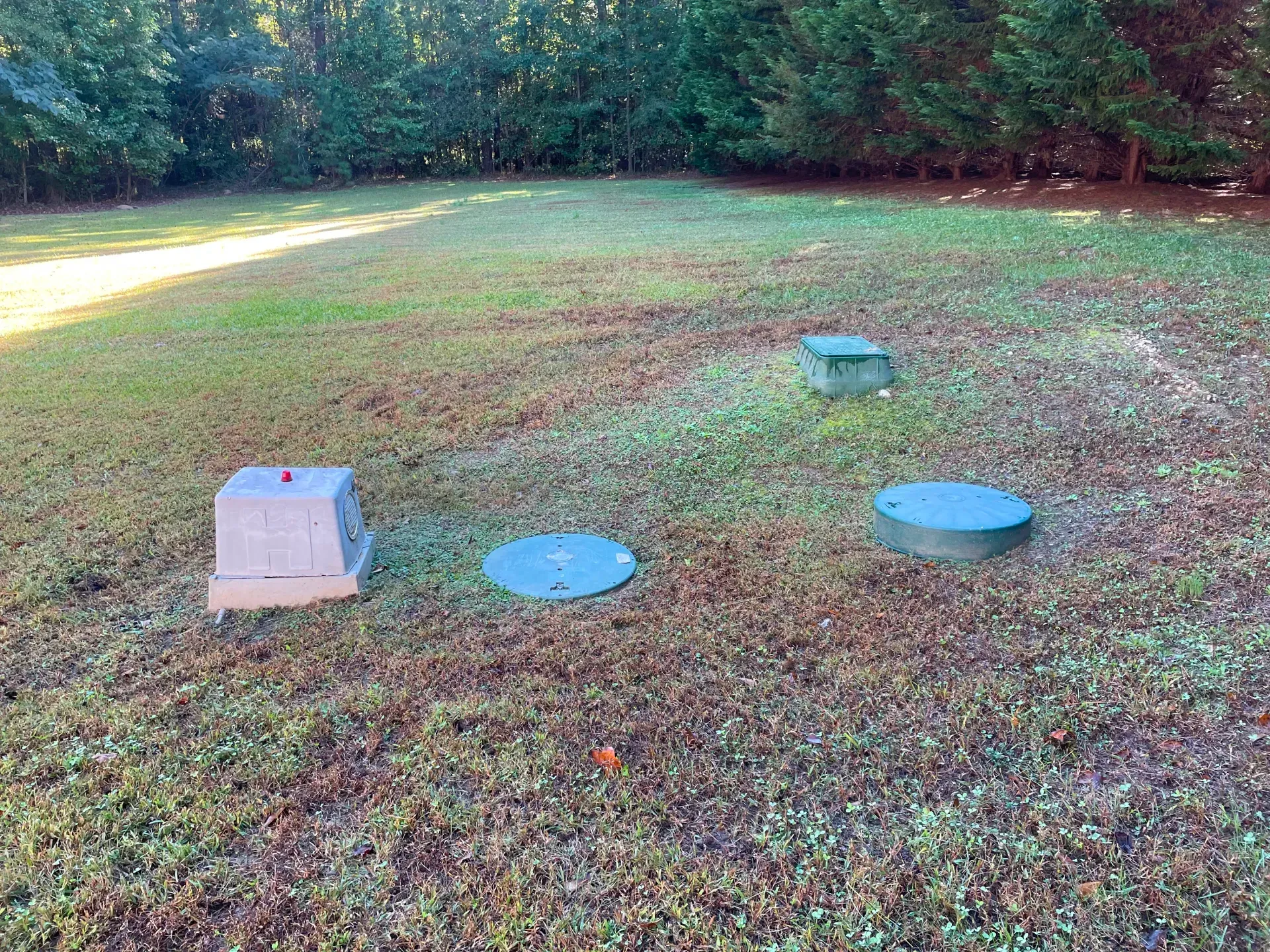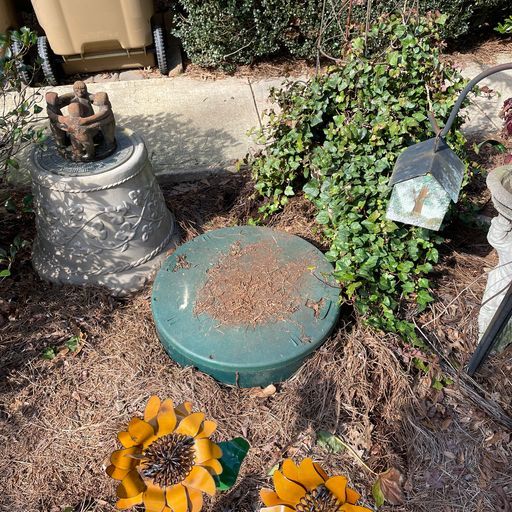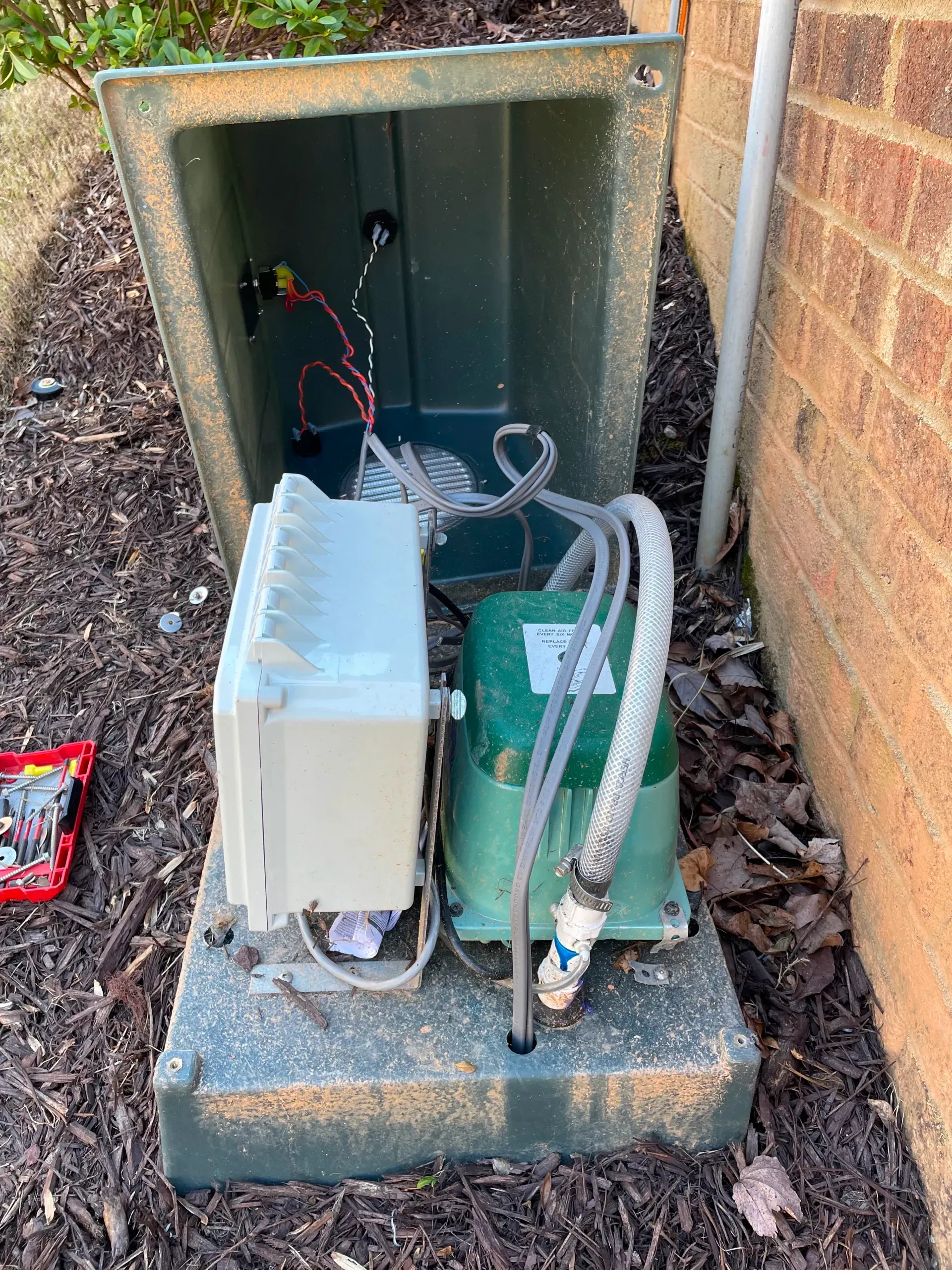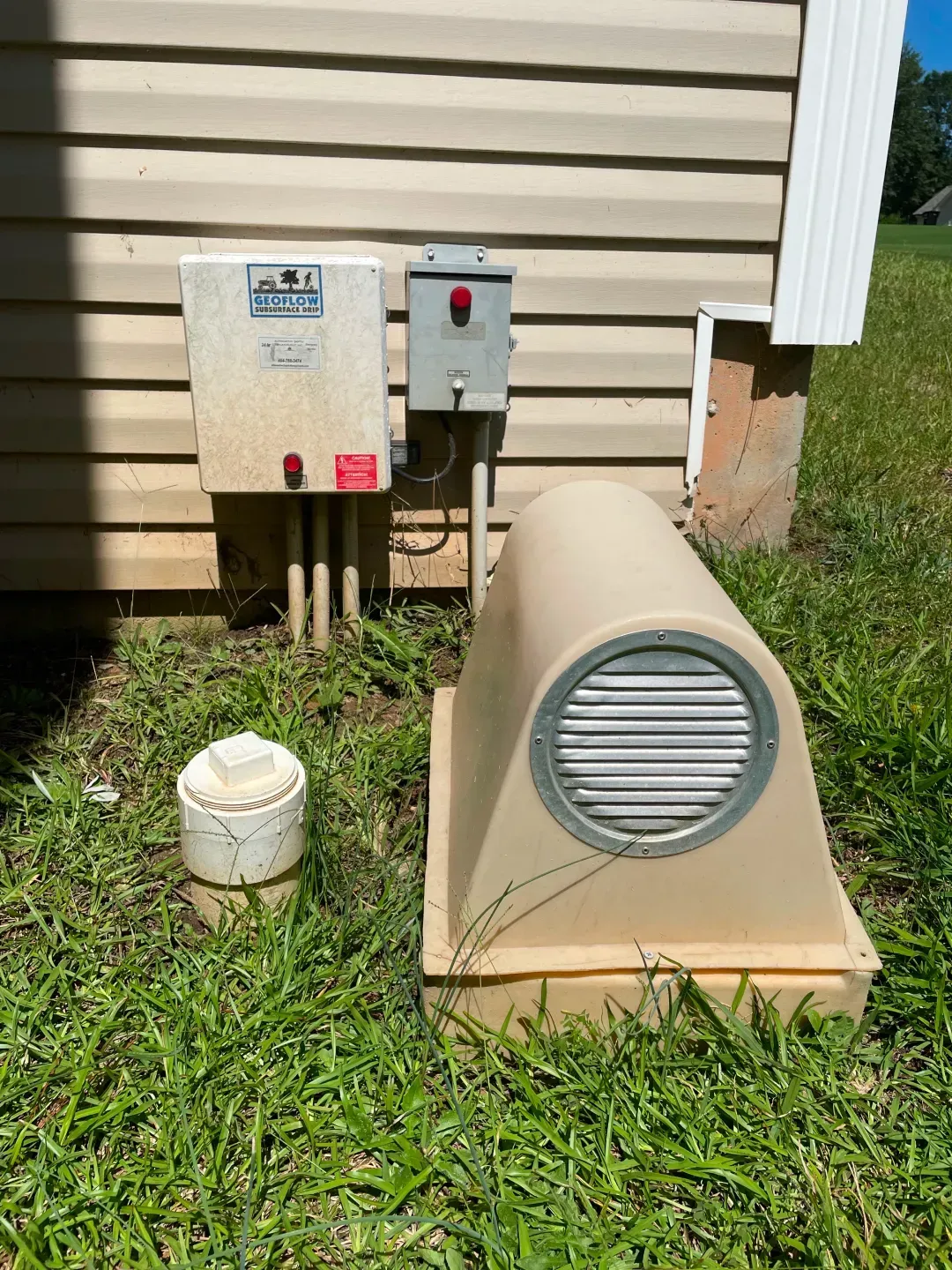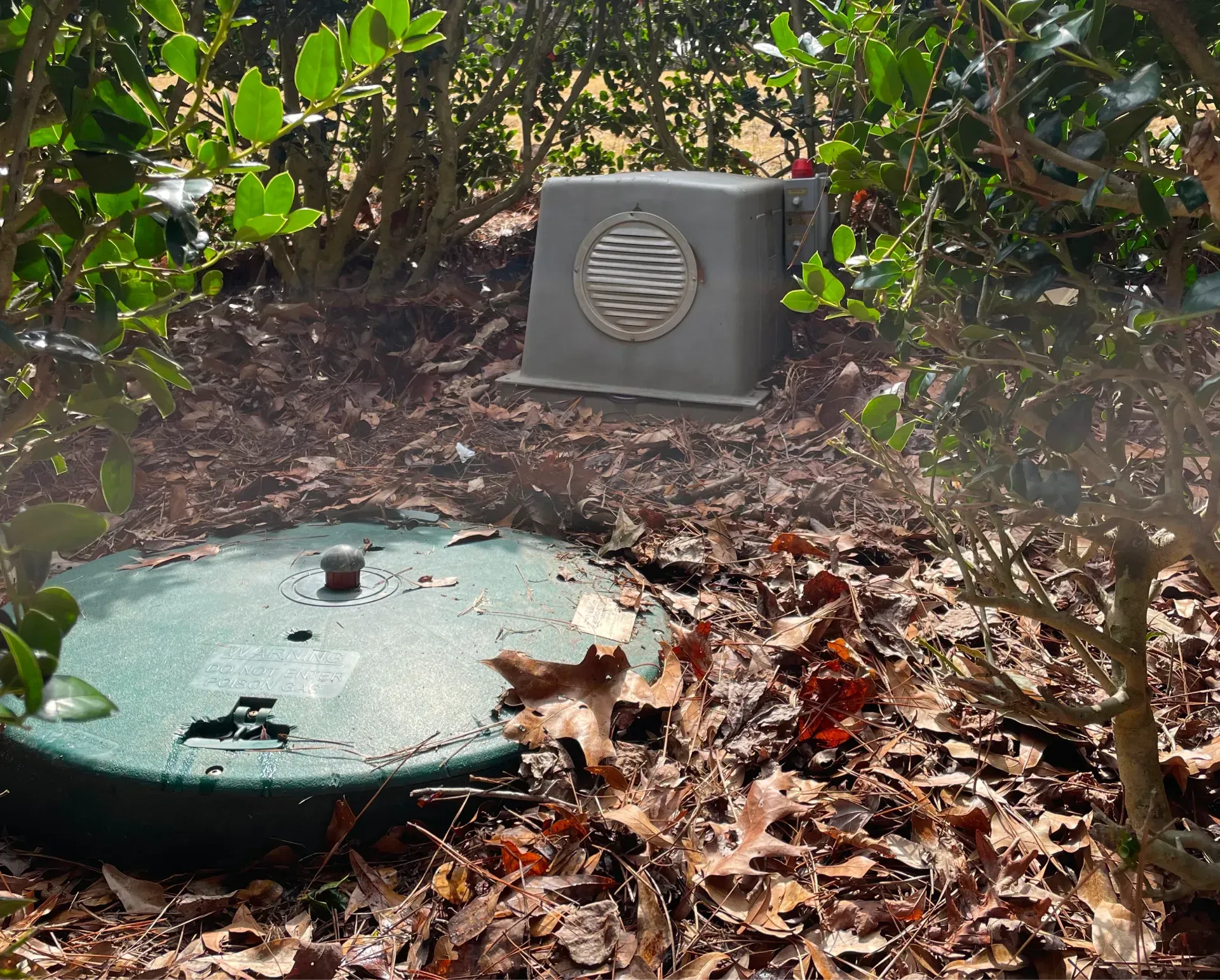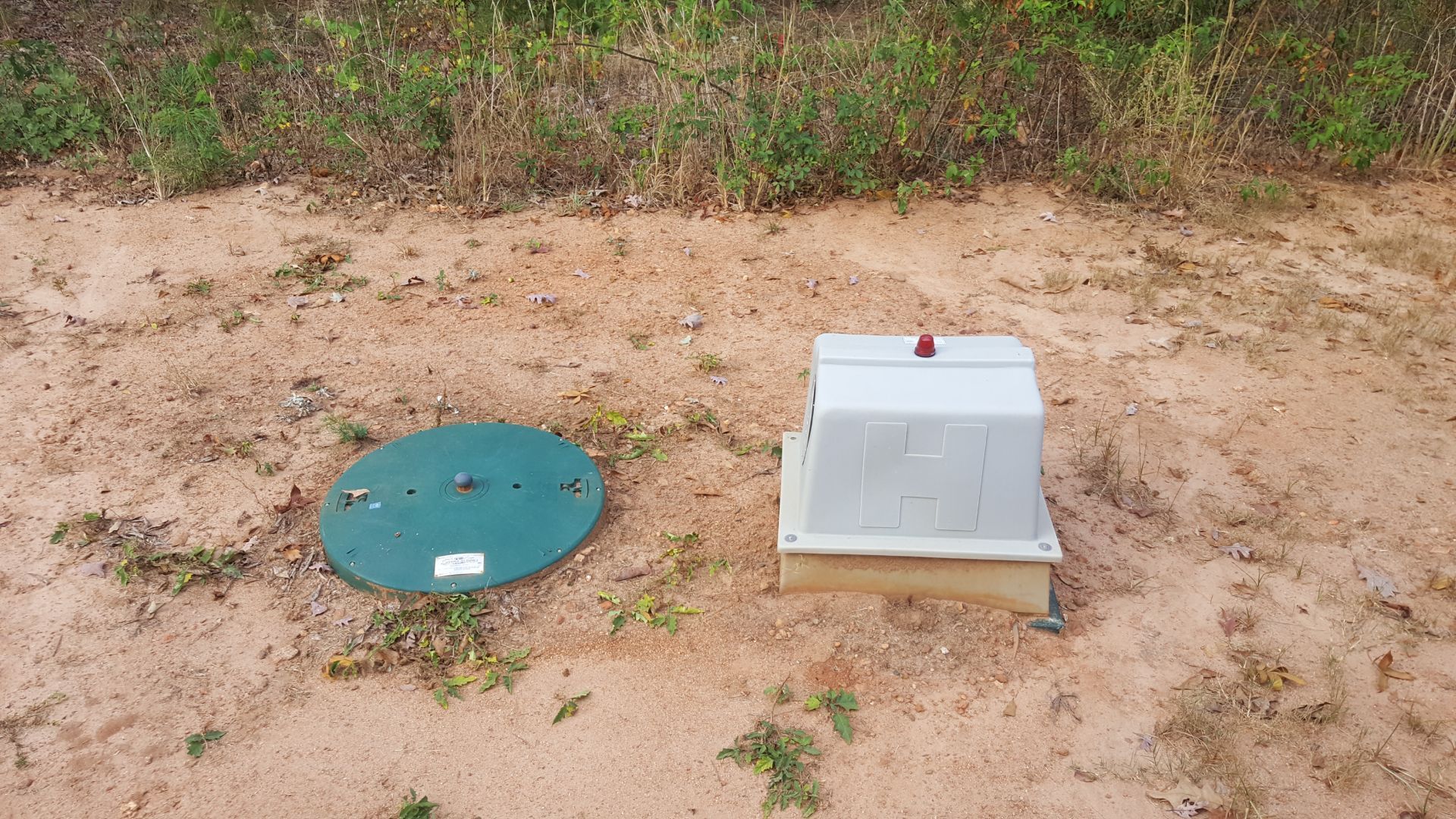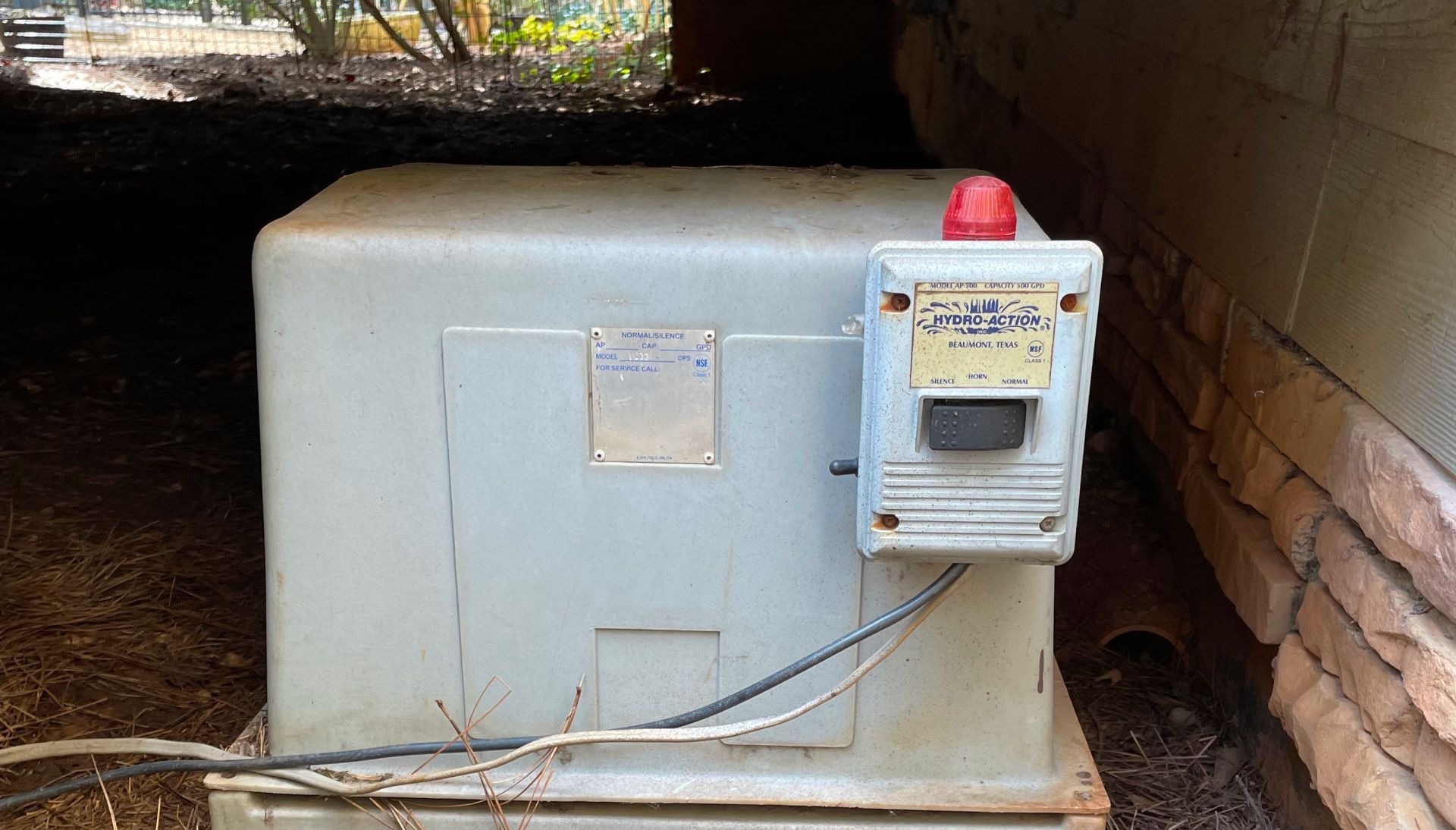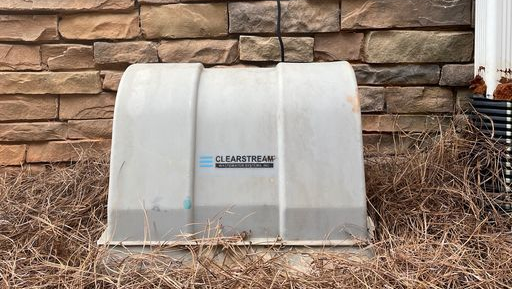Top 5 Warning Signs You Need Pump Repair on Your Aerobic Septic System
At Alternative Septic Management, we specialize in supporting Georgia homeowners with aerobic treatment units (ATUs). One of the most critical components of an ATU is the pump. It plays a key role in transporting treated effluent to the drain field. When the pump starts to fail, system-wide problems can follow. Recognizing the warning signs early helps prevent serious damage, system backups, and costly repairs.
1. Slow Drains and Backups in the Home
What It Looks Like
One of the earliest signs of septic pump trouble is slow drainage in your sinks, tubs, or toilets. You might also notice wastewater backing up into household fixtures. These problems typically indicate that the pump is no longer moving effluent efficiently out of the tank.
Why It Happens
When the pump isn’t functioning properly, effluent builds up in the tank and has nowhere to go. This can cause pressure to build in the pipes and slow or reverse drainage. Ignoring this issue can lead to backups and unsanitary conditions.
2. Alarm Activation or Warning Lights
Understanding Your System’s Alerts
Most aerobic systems come equipped with alarms or indicator lights designed to alert homeowners to system malfunctions. If your alarm sounds or a warning light appears on the control panel, it’s your system telling you something is wrong, often with the pump.
What It Could Mean
- High water levels in the tank
- Electrical problems preventing the pump from running
- Mechanical failure of the pump motor
Even if everything else seems to be working, always take alarm signals seriously. A quick inspection can save you from a system failure later.
3. Unpleasant Odors Around the Tank or Drain Field
Why Odors Matter
Foul smells near your septic tank or drain field often signal trouble. In an aerobic system, odors suggest that wastewater isn’t being treated or moved out of the system correctly.
When the Pump Is To Blame
If the pump fails, partially treated effluent can accumulate in the tank. This creates an anaerobic environment, leading to odors similar to rotten eggs (hydrogen sulfide). These odors are not just unpleasant—they indicate incomplete treatment and potential health risks.
4. Standing Water or Wet Spots in the Drain Field
Spotting the Problem
During dry weather, your drain field should not have pooling water or overly wet soil. If it does, this may indicate that the pump isn’t properly dosing the drain field, allowing too much effluent to accumulate in one area.
Possible Pump-Related Causes
- Uneven or infrequent dispersal of effluent
- Total pump failure causing overflow
- High-volume discharge overwhelming the field
Standing water poses environmental concerns and can lead to long-term damage to your drain field infrastructure.
5. High Water Levels in the Septic Tank
How To Check the Water Level
Many aerobic systems are built with risers that allow visual inspection of the tank’s water level. If you observe water near the top or spilling into components it shouldn't reach, this is a sign the pump isn’t moving effluent as designed.
Why It Happens
When the pump stops working or is not operating on schedule, effluent builds up in the treatment tank. Continued water use in the home causes the tank to overfill, which may eventually trigger the high-water alarm or backflow into the house.
What Causes Aerobic Pump Failure?
Common Mechanical and Environmental Factors
Understanding the source of pump failure can help prevent future problems. Here are some of the most frequent causes:
- Age and general wear over time
- Clogs caused by debris or a lack of filter maintenance
- Electrical issues, such as damaged wiring or failed float switches
- Overuse or increased water demand
- Poor system design or installation
Routine inspections help identify these issues before they escalate into emergencies.
How Alternative Septic Management Handles Pump Repairs
Our Expert Diagnostic Approach
At Alternative Septic Management, we bring years of experience diagnosing and resolving ATU issues. When we respond to a pump problem, we:
- Inspect the pump chamber and electrical connections.
- Evaluate the control panel and float switches.
- Test pump cycling and flow.
- Recommend repair or replacement based on condition and system age.
Reliable Repair and Replacement Services
If your pump can be repaired, we carry out the work using parts approved for your system. If a replacement is necessary, we install a high-efficiency, durable pump that meets Georgia regulations and your household needs.
Maintenance To Prevent Recurrence
We offer ongoing service plans that include scheduled inspections, cleaning, and system adjustments. Preventive maintenance is the key to long-term performance and avoiding repeated pump failures.
Keep Your System Flowing With Alternative Septic Management
A failing septic pump can bring your entire aerobic system to a halt, but with the right care and quick action, it doesn’t have to. At Alternative Septic Management, we provide fast, thorough service for Georgia homeowners to keep their ATUs operating reliably year-round.
If you’ve noticed slow drains, alarm signals, foul odors, or standing water near your system, it may be time to have your pump inspected or repaired. Don’t delay—addressing problems early can prevent more serious (and expensive) system failures.
Call or text Alternative Septic Management at (404) 788-3474 or visit our website to schedule your service today. We’re ready to help you restore confidence in your septic system and protect your property from costly damage.

